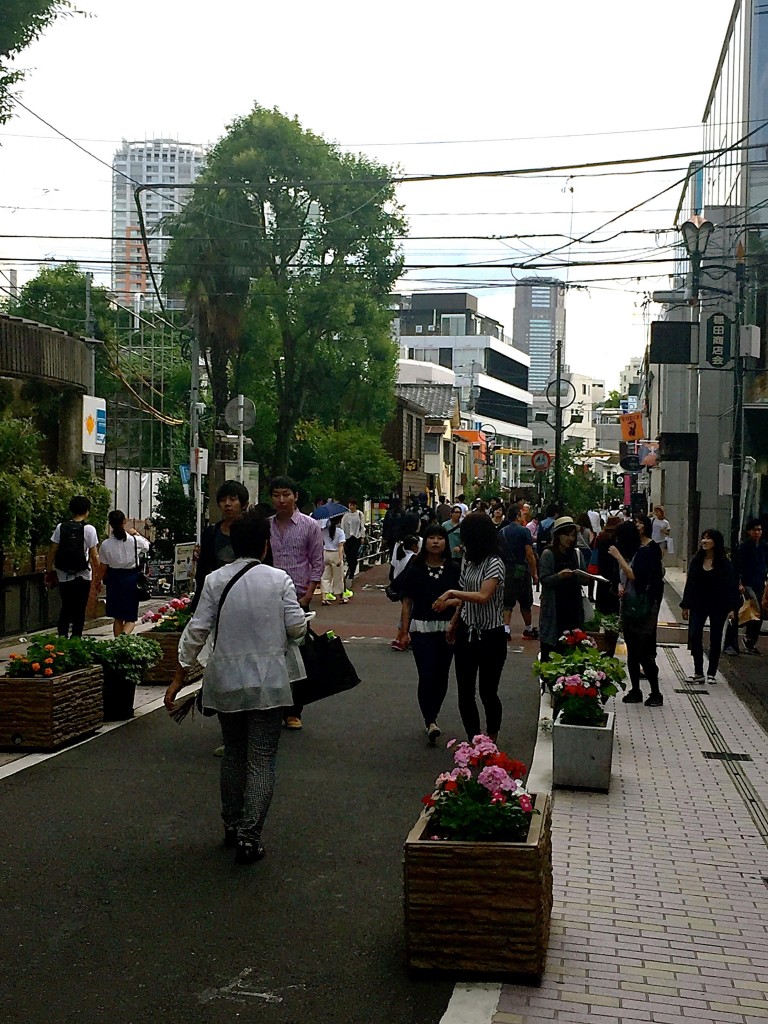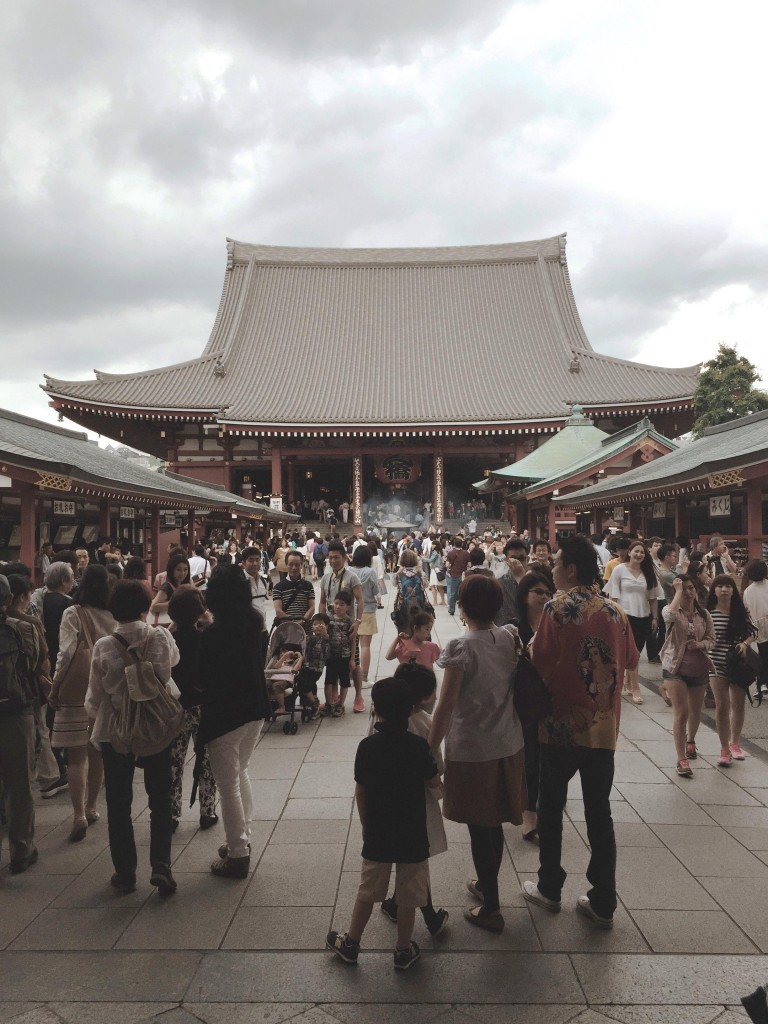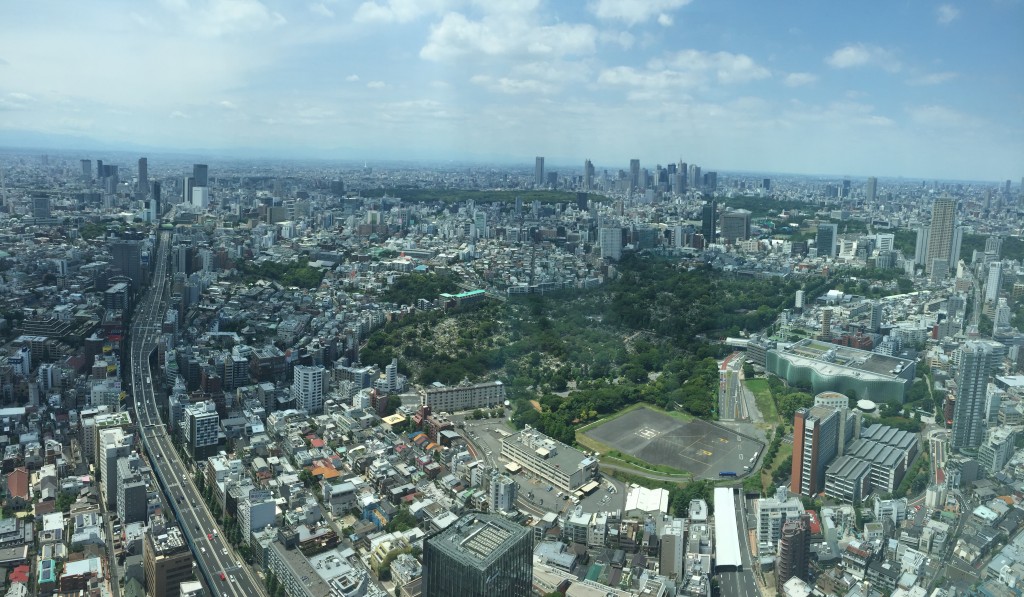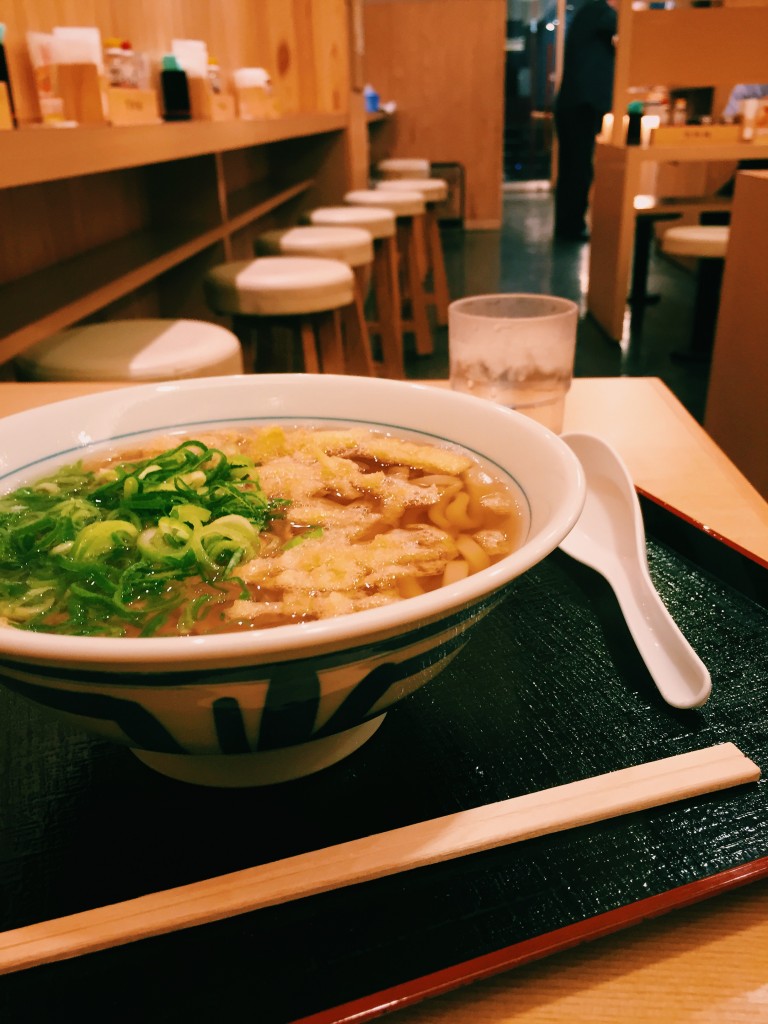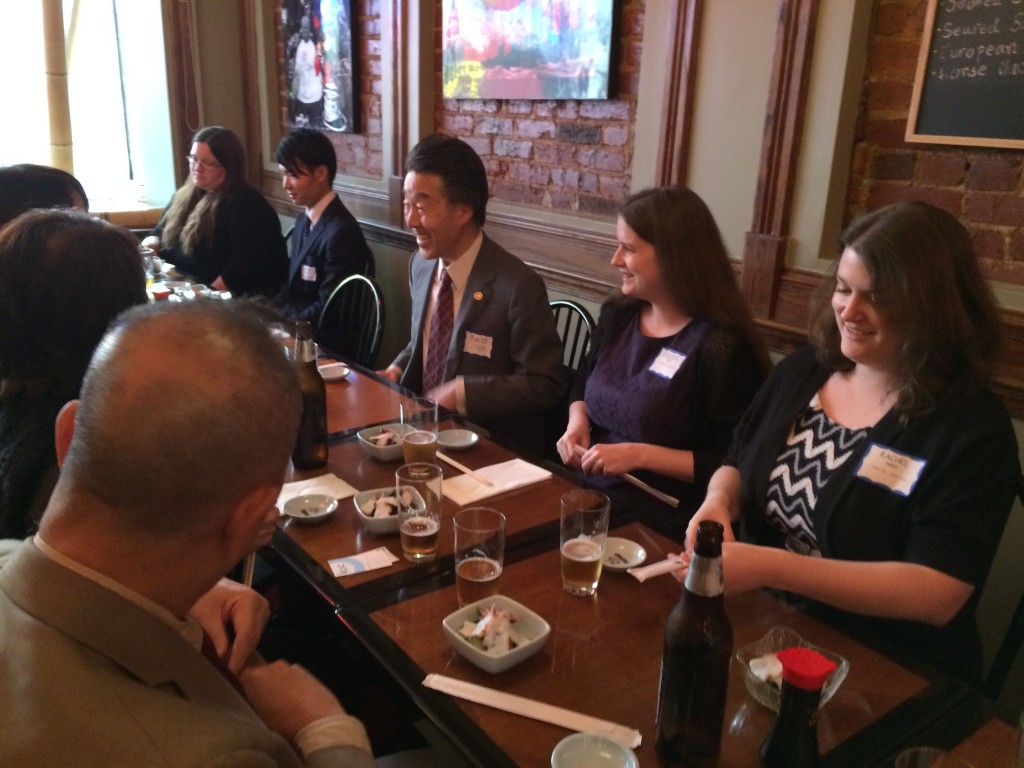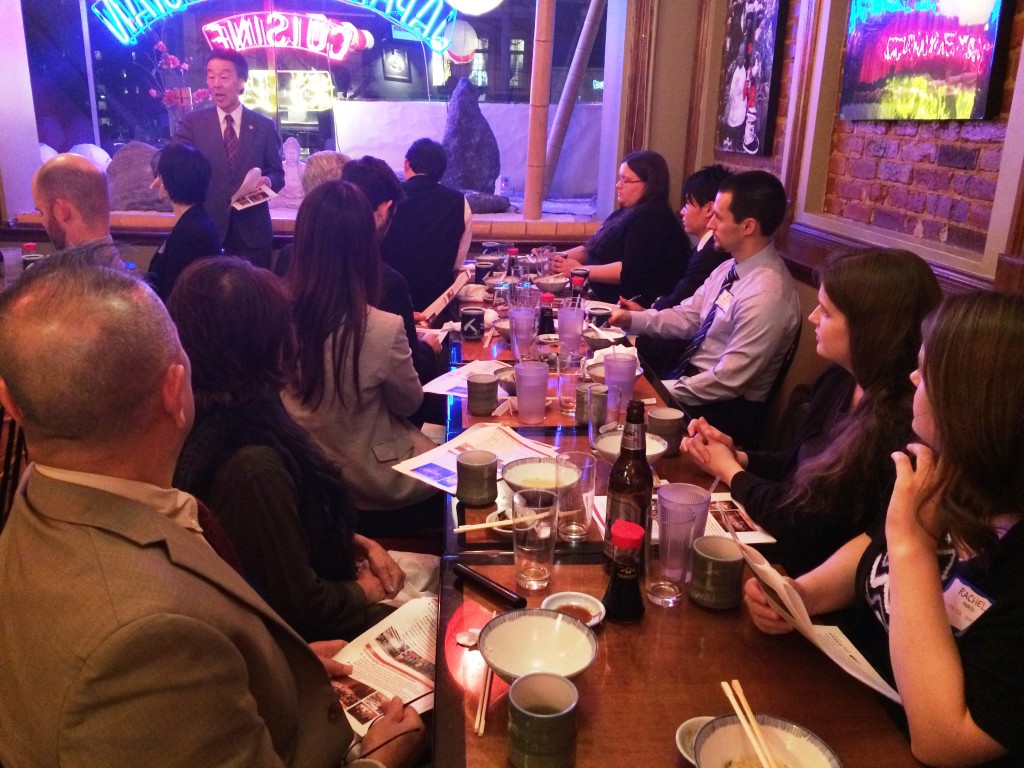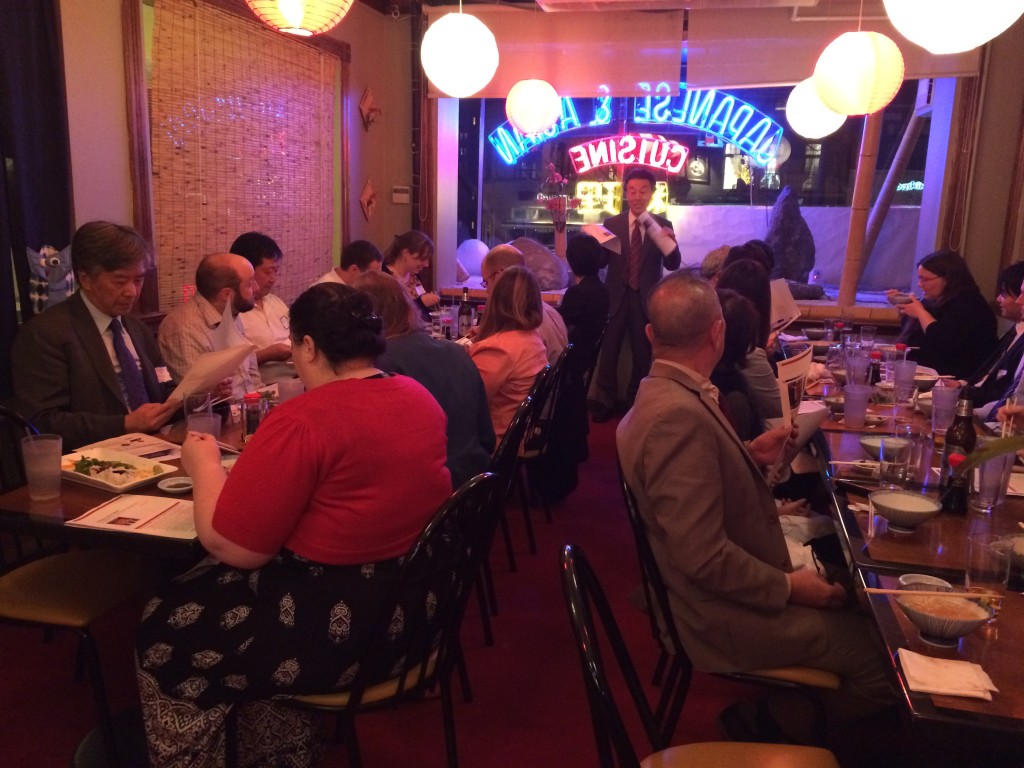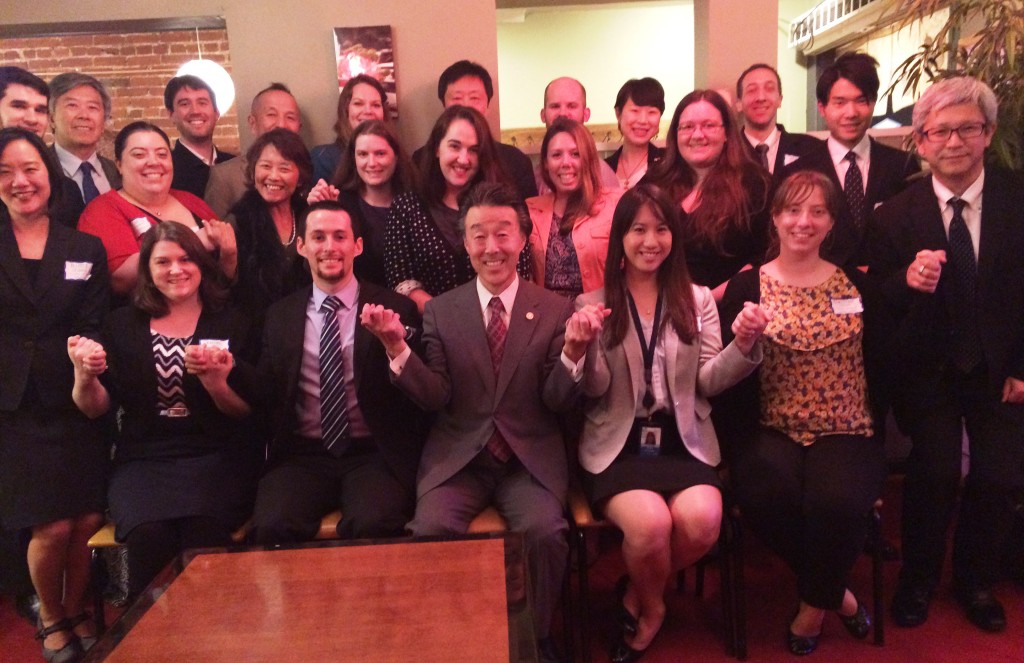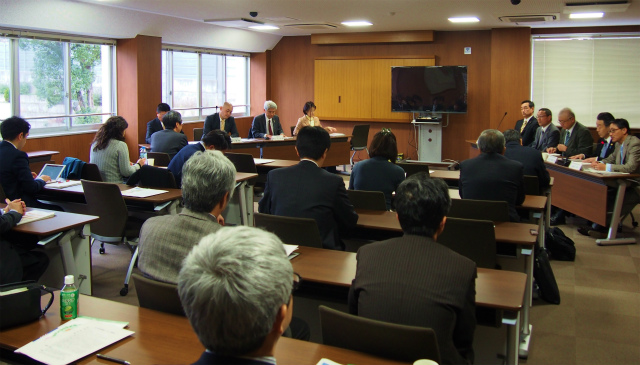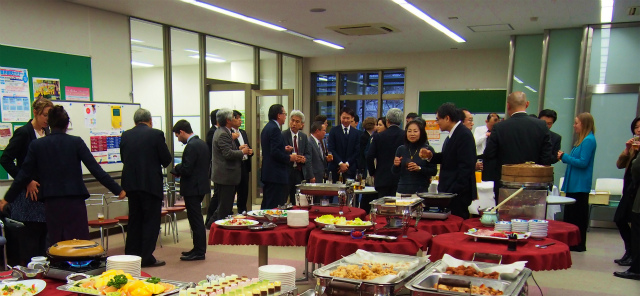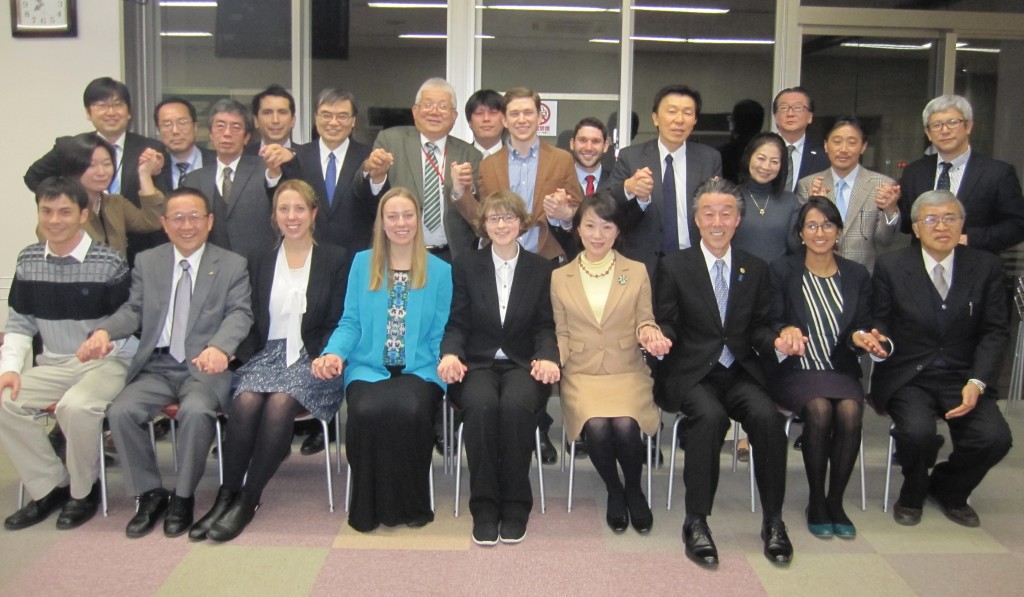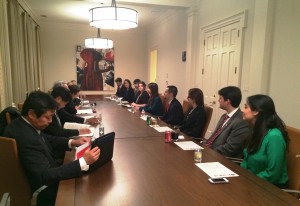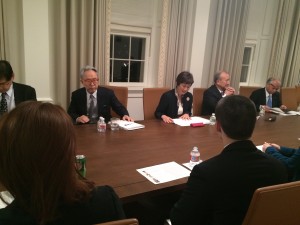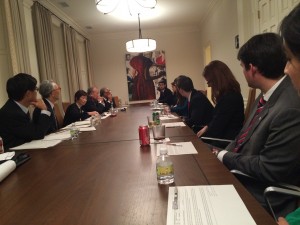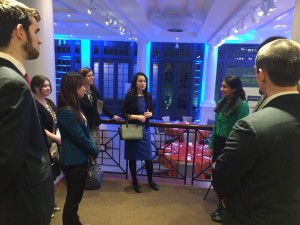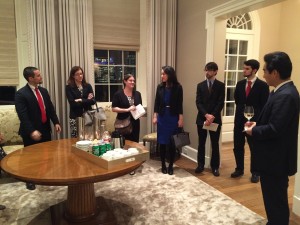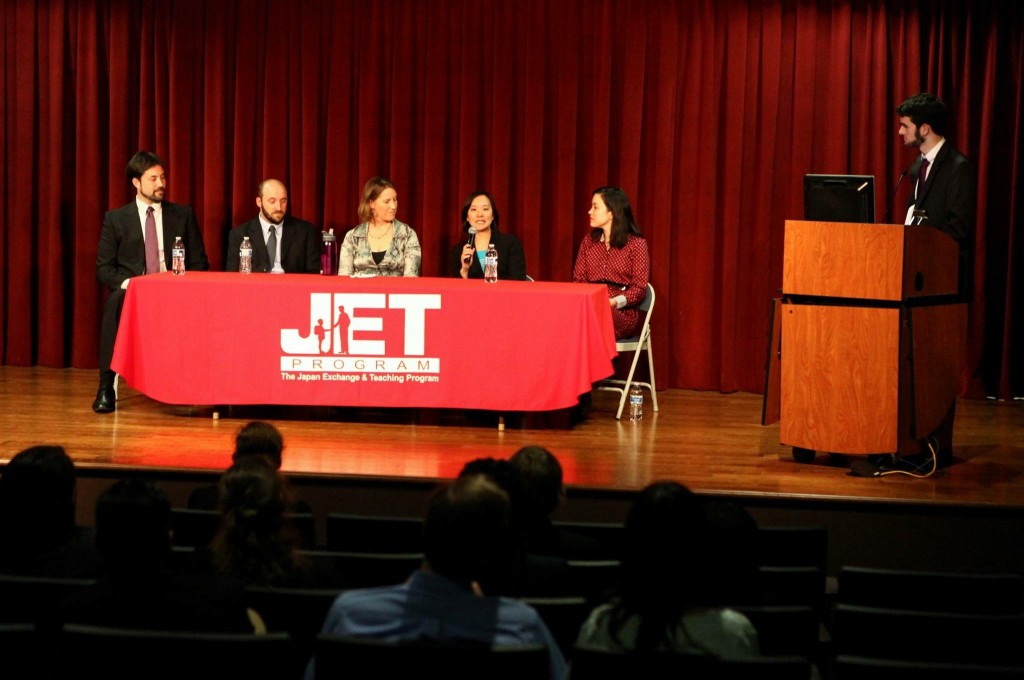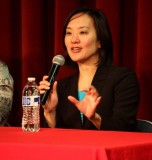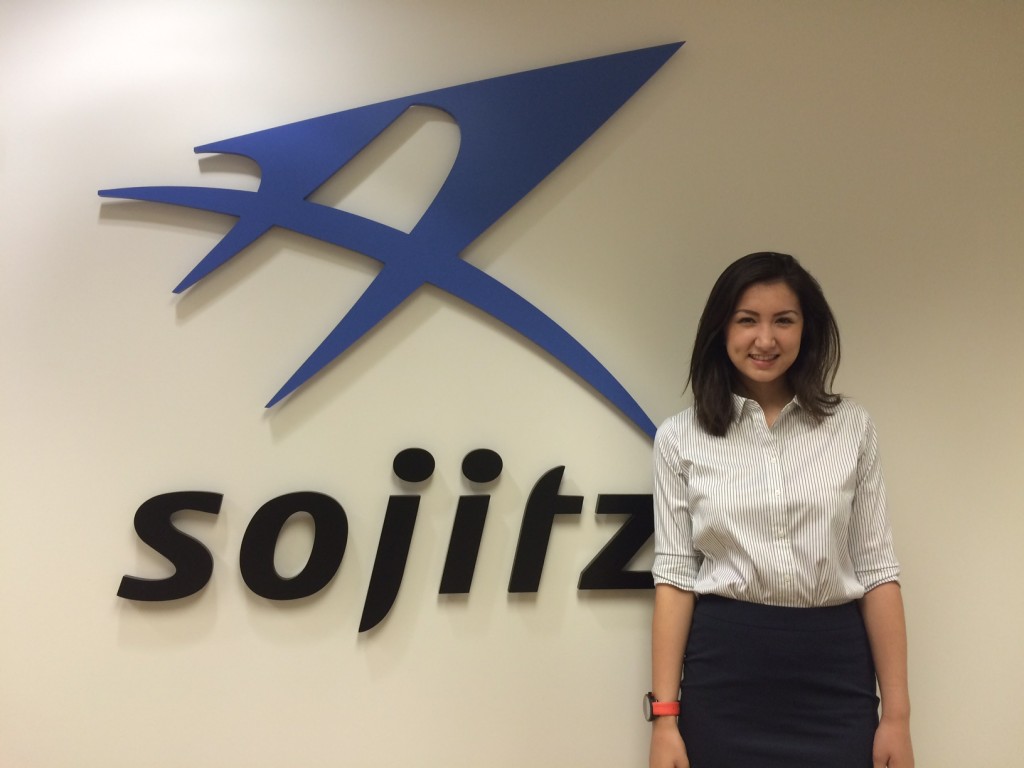My Tokyo Experience Trip
By Hana Springer
Sojitz HQ: Office Antics
I have never been more intimidated in my entire life than I was on my first day at Sojitz HQ. I told myself time and again that there was no reason to be nervous, that both my ability to speak Japanese and my past experiences in the country ensured a smooth transition into Tokyo life. Instead, I found myself shaking as I was swallowed into the throng of Japanese professionals, a bumbling gaijin that had already managed to get in the way of multiple office-bound business people. My rusty Japanese skills made me all the more nervous as I was welcomed by the Soken staff, who were friendly but reserved in the typical Japanese manner. The office was beautiful, and I would look up from my work every so often and stare out the window, the Tokyo Tower in my direct line of sight. I could barely fathom that I was neither studying nor touring, but working in this megacity, a foreign metropolis so unlike any American city.
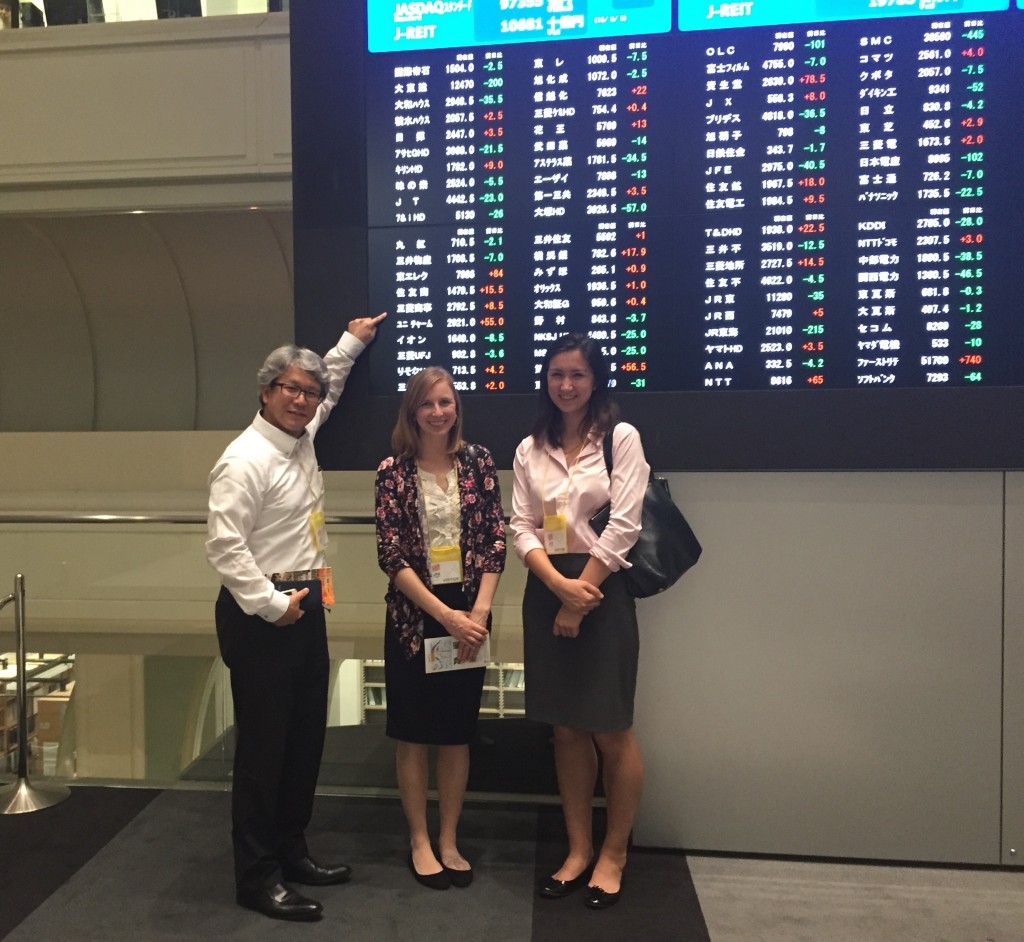
(Visiting the Tokyo Stock Exchange with Sojitzers)
My first day consisted of a session with the HR department that went over Sojitz history and Japanese corporate culture, the latter of which was extremely useful and also somewhat amusing: as a foreigner, I could only imagine how frustrating the Japanese concepts of honne (internal feelings) and tatemae (expected behavior) could sometimes prove for non-Japanese employees. On Friday, Tada-san gave me the rare opportunity to visit Prime Minister Abe’s office. I sat in in on a meeting between Tada-san, another employee at Sojitz, and Tomohiko Taniguchi, a special advisor to the Prime Minister’s Cabinet. Walking through the wide, airy corridors of Abe-san’s office—the Japanese equivalent of the Oval Office—was a surreal experience, one that I never dreamed I would be lucky enough to have.
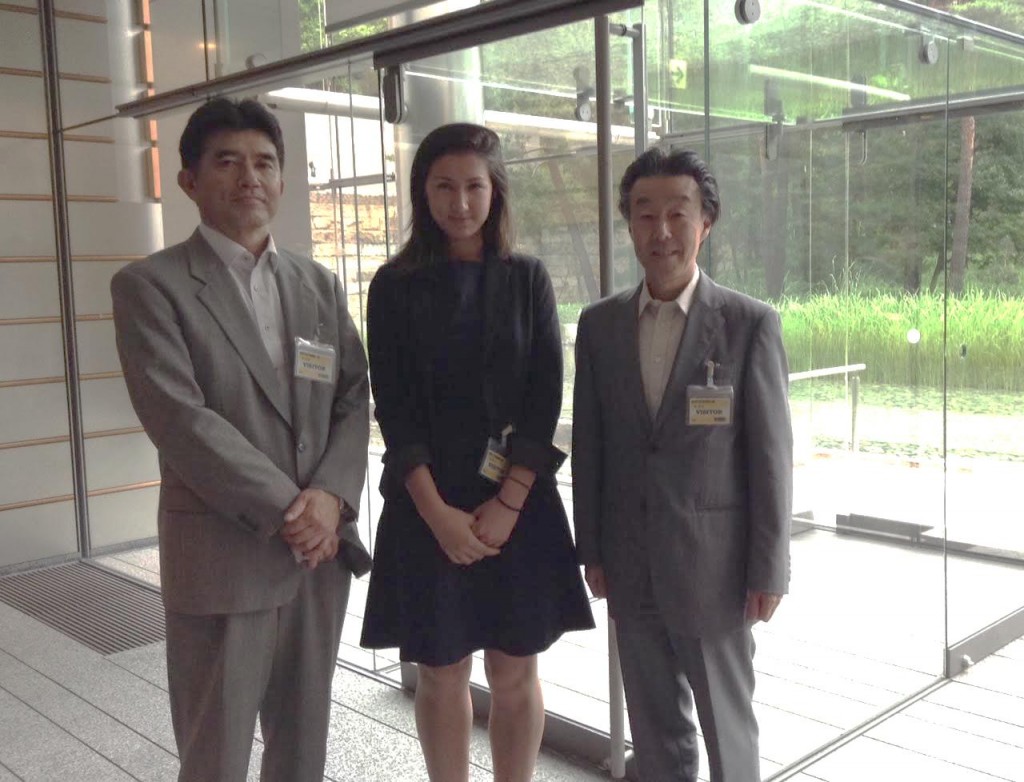
(Visiting the Kantei, Prime Minister Abe’s office with Yukio Tada)
The following week was when the workload began to pile up, as my coworkers and Tada-san arranged various meetings for my benefit and I began to compile research for my final presentation. Throughout the week, I visited the Tokyo Stock Exchange, spoke to two policy studies professionals at Keizai Doyukai, met and sat in on a class with a professor on International Relations in East Asia at Waseda University’s Graduate School of Asia-Pacific Studies, and was introduced to the previous Japanese ambassador to Uzbekistan and Tajikistan. Each event proved to be an invaluable experience that broadened my knowledge on the subject at hand and sometimes even overlapped with my own research. In addition, I spent any spare time I had completing my research assignment from Tada-san.
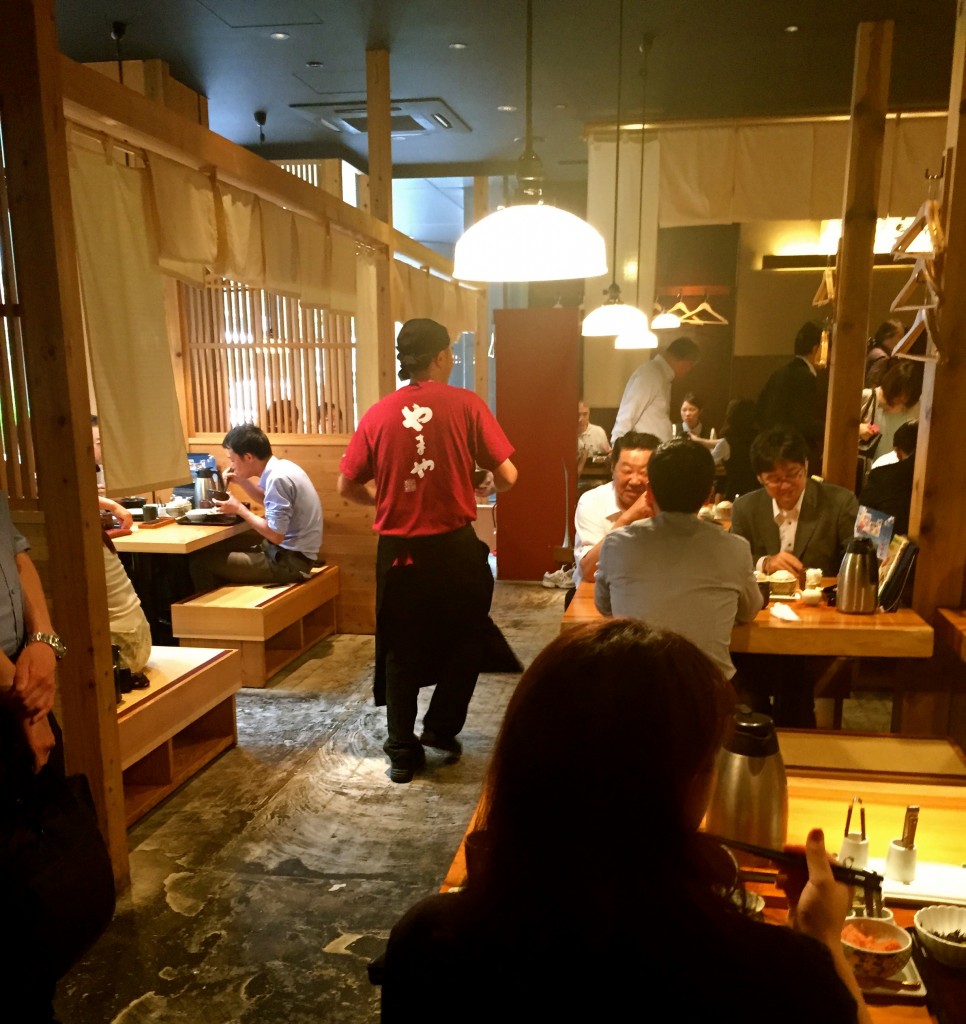
(Lunch with Soken staff)
If you asked me about the latest developments in digital currency a week ago, I could tell you that things like Apple Pay and Venmo are miracles in the world of easy financial transactions from one’s smartphone. Tada-san’s assignment, however, covered something far more complex than a debit card linked to an app and one’s Facebook profile information. “I want you to find out about new developments in the field of cryptocurrency and tell me how it will target social issues, particularly in Japan,” he told me. I was baffled and entirely unsure as to where to even begin looking. But as an intern, you say no to absolutely nothing, and so for the next few days I switched screens between my own research and multiple articles on cryptocurrency technology. By the end of the week, I was much more well-versed on the latest developments in digital currency and, of course, my own research topic.
My research topic of choice was based on my desire to combine my interest in China with my connections to Japan. As I thought back upon a think tank I had attended in D.C. on perceptions of China from various continents, I decided upon a research presentation that focused on perceptions between Japan and China and why the two have such a difficult bilateral relationship. But as I gathered information, I began to worry about the nature of my topic: was it too trite? Would people find it valuable? How would I effectively present it? My weekend exploring Tokyo and witnessing the swarms of Chinese tourists (the devalued yen was benefitting everyone, it seemed) proved to be a relevant part of my research as I dove into the tensions behind Sino-Japanese relations and the latest situation between the two countries. My fear of public speaking made my final day at Sojitz the most stressful of them all, and while the presentation portion of my topic was as nerve wracking of an experience as I had anticipated it to be, it was also one of the most valuable. I have had little practice with legitimate presenting in front of others, but the amount of both positive feedback on my research and advice—“slow down”—I received inspired me to perfect my presentation skills for the future.
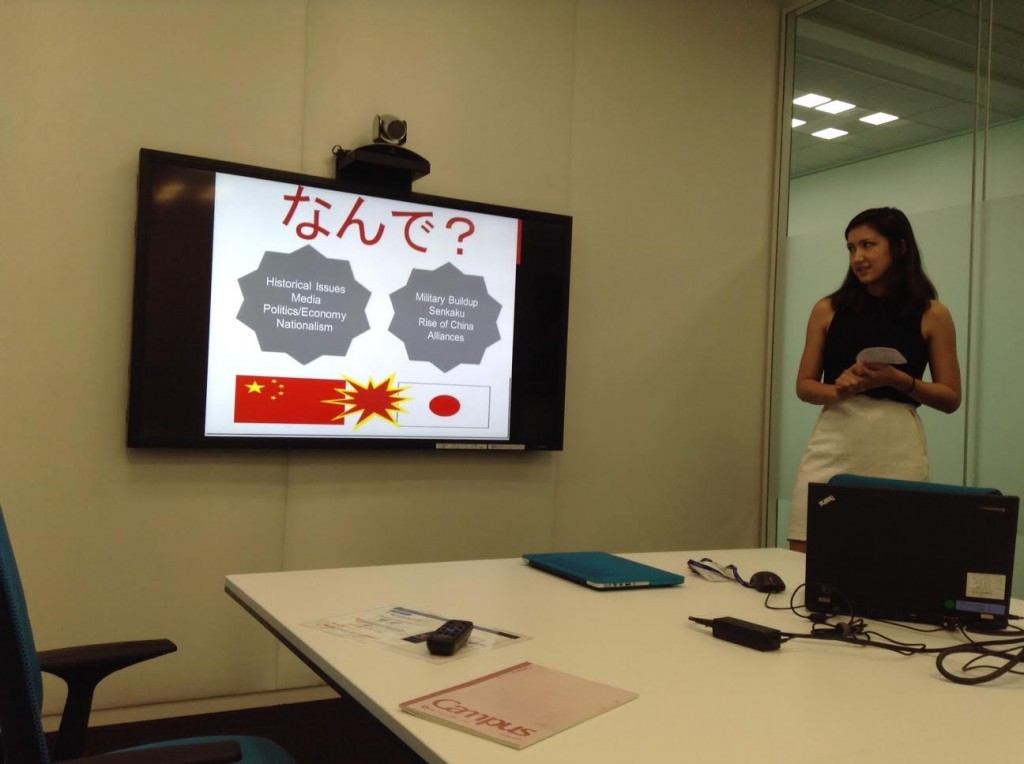
(Delivering my presentation of my research project)
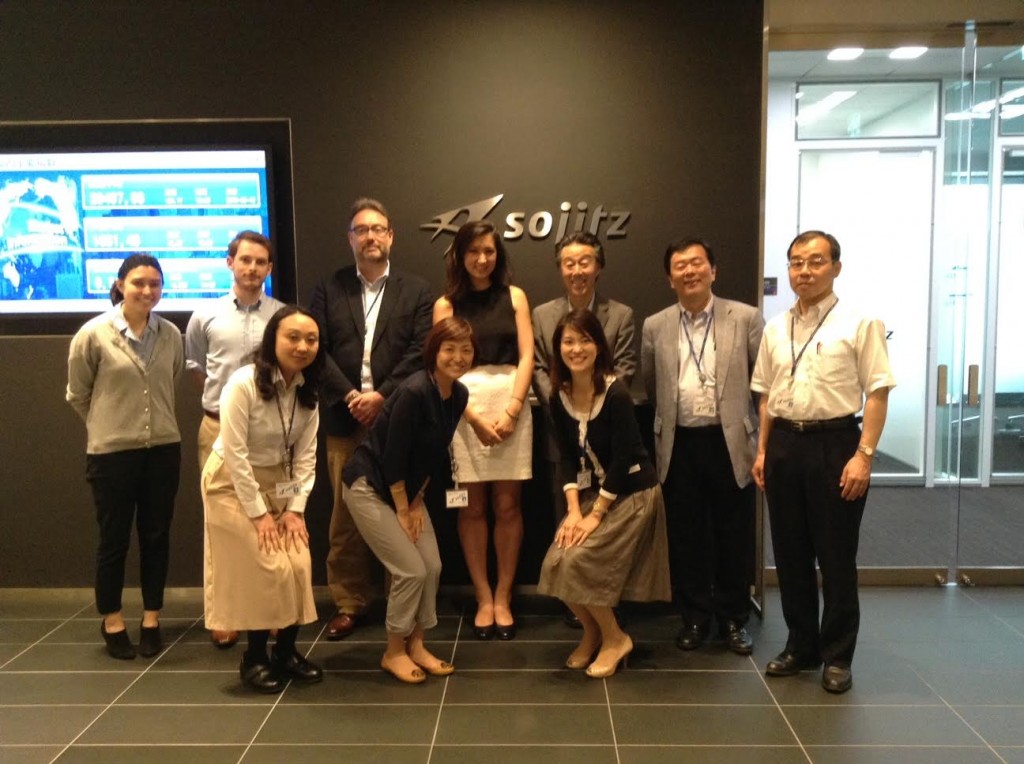
(Post-presentation with Global HR and Sojitz Research Institute employees)
The Tokyo Experience: Outside the Office
My interactions with my coworkers proved to be some of my favorite. My first day at Sojitz ended with a filling meal of real Japanese sushi (a far cry from the Westernized delicacy that is so sought after in the States) amidst my new colleagues and a fantastic view of Tokyo from the rooftop of Tada-san’s apartment. I was nervous to eat with my elders, who I so desired to make a good impression upon, but interacting with Tada-san and my other coworkers was nothing but fun and the perfect way for me to reconnect with my Japanese-speaking skills. Tada-san treated me and a few other colleagues the next evening to a delicious dinner of okonomiyaki, or as he called it, “Japanese pizza.” Eating lunch with my coworkers almost everyday and my outings with a few of them gave us a chance to connect on a personal level and made my experience in the office that much more enjoyable, for which I was extremely grateful. Saying goodbye to them was one of the hardest parts of my last day at Soken.
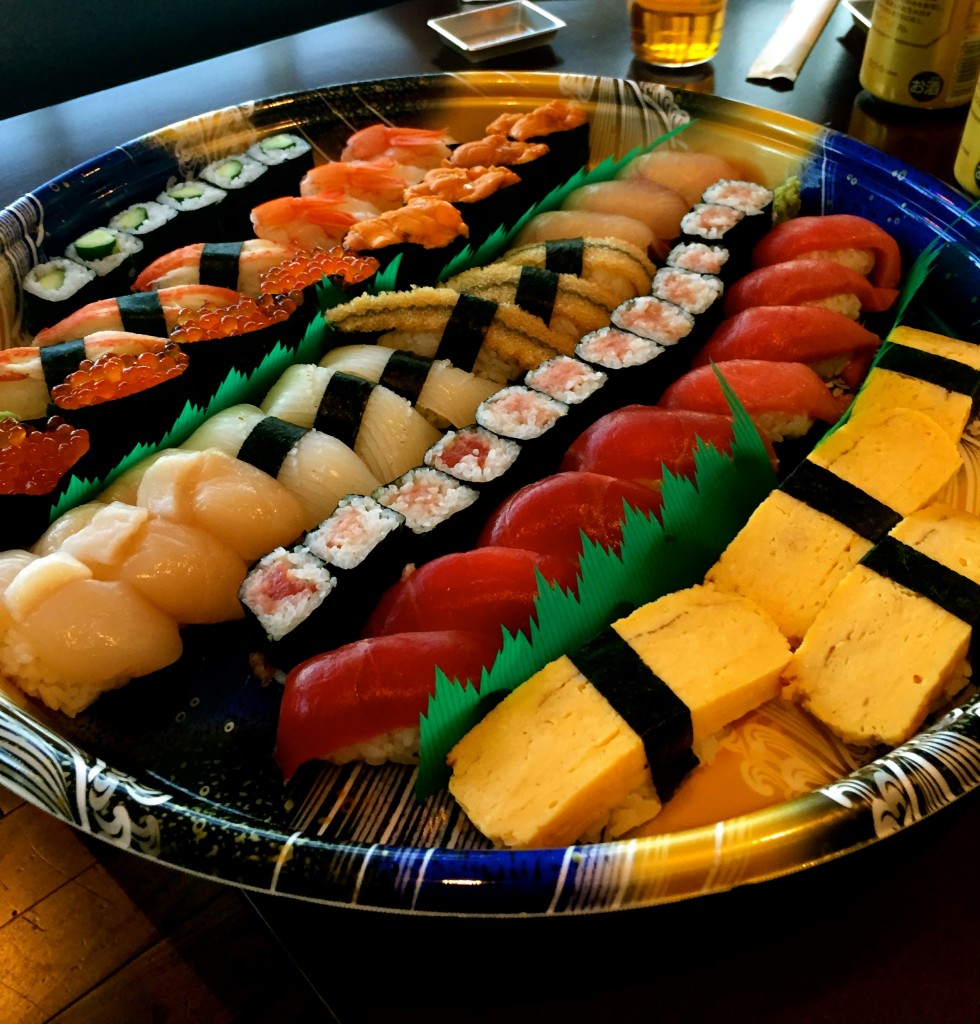
(sushi)
Life in Tokyo on my own was thrilling in just about every sense of the word. I have a few friends and a cousin in the city, and I was lucky enough to experience various districts in Tokyo with each of them. I experienced Shibuya on a Friday night, and seeing all kinds of people amidst the neon lights and crowded streets was a true “only in Tokyo” experience. The following day, I spent almost an hour getting lost amidst the various food vendors in Mitsukoshi before wandering the crowded, ancient streets of Asakusa. I spent my Sunday exploring Roppongi and witnessed the amazing view from the 54th floor of the Mori Tower in Roppongi Hills before meeting a friend in front of Takeshita-dori. We walked from the crowded streets of Harajuku to Omotesando (one of my personal favorites) to Shibuya, by the end of which my legs were exhausted. My time in Tokyo was more than just a chance for me to experience the various aspects of Tokyo life or try delicious foods; it was a taste of what my dream life would be like. I only hope that one day I will be so lucky as to work and live as a young person in this amazing city.
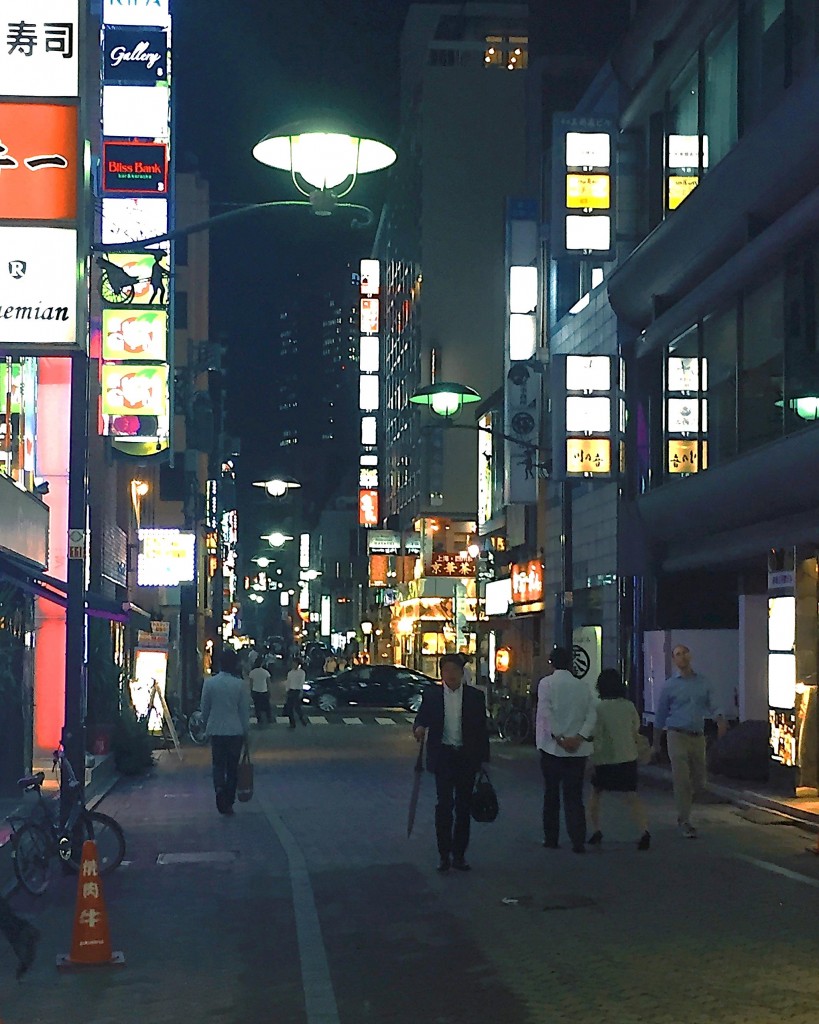
(Walking around Akasaka)
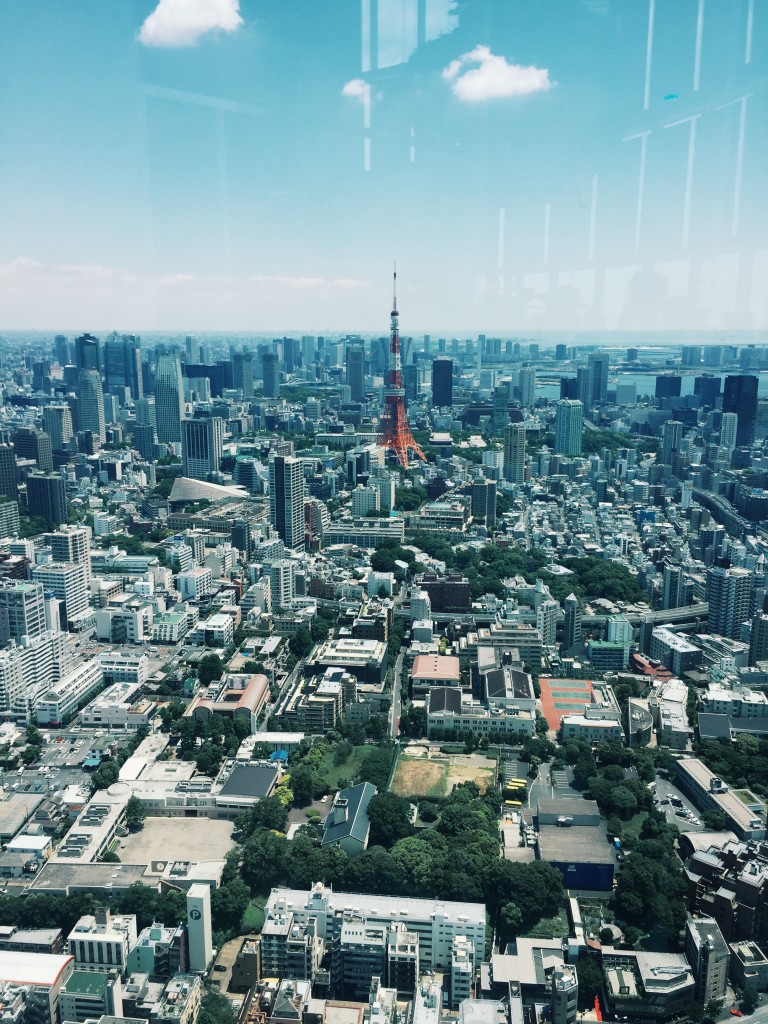
(View from Mori Tower)
My Tokyo trip came to an end as quickly as it began, but not without exploring Tokyo a little more first. My dad arrived in Tokyo the morning I checked out of my hotel in Akasaka, so we were able to spend the day exploring areas I hadn’t seen yet before I left to go visit my grandparents in Kyushu, where I would lead a very different life from the one I had gotten used to in the past week.
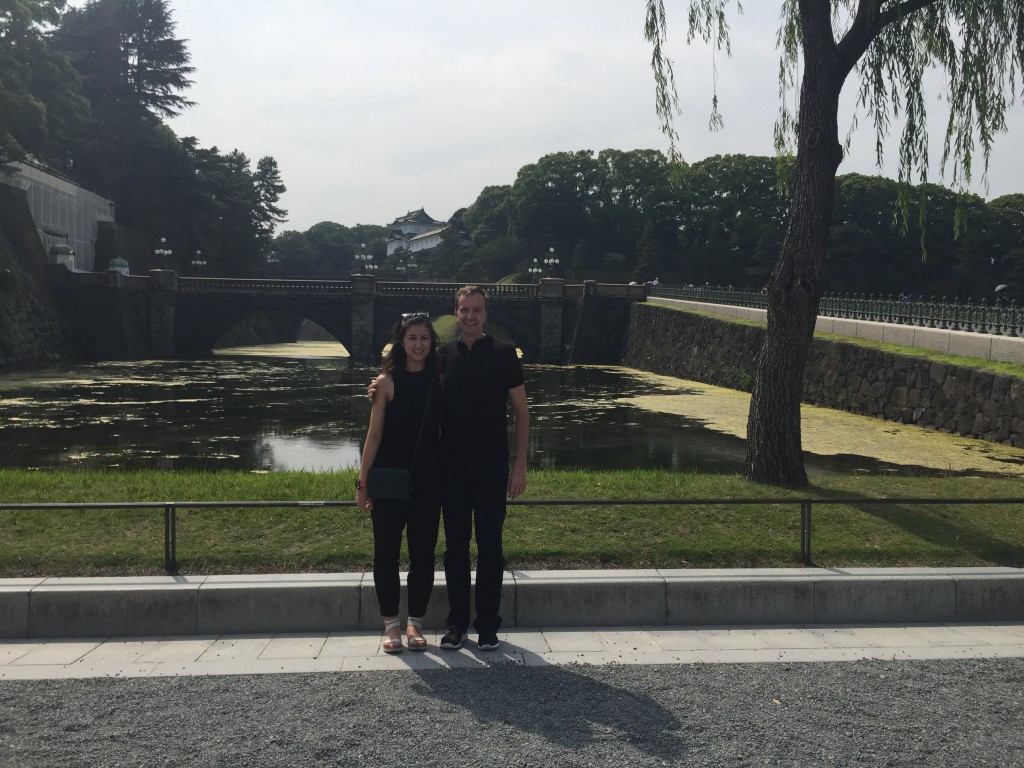
(Visiting Tokyo Imperial Palace with my dad)
As I retreated into the quiet lifestyle that my grandparents lead down in rural southern Japan—sleeping on a tatami floor, bathing in a Japanese onsen, and eating my grandma’s mouthwatering food in a sprawling but old city where most people are over 60—I reflected on all that I had experienced in the past ten days. I could not have asked for a greater experience: I learned more than I ever thought I would, met brilliant people who I would not have otherwise had the opportunity to, and experienced what it was like to live on your own in a magnificent city. I am indescribably thankful to all of the people who made each moment of this trip possible, and I cannot express how inspiring and motivational this entire internship has been for me. In the simplest terms, I have been given a taste of a life I hope I will be so lucky as to one day have, and this experience has both opened a number of doors and set me in the direction I intend to pursue. It truly excites me to know just how much future CEPEX winners have ahead of them.
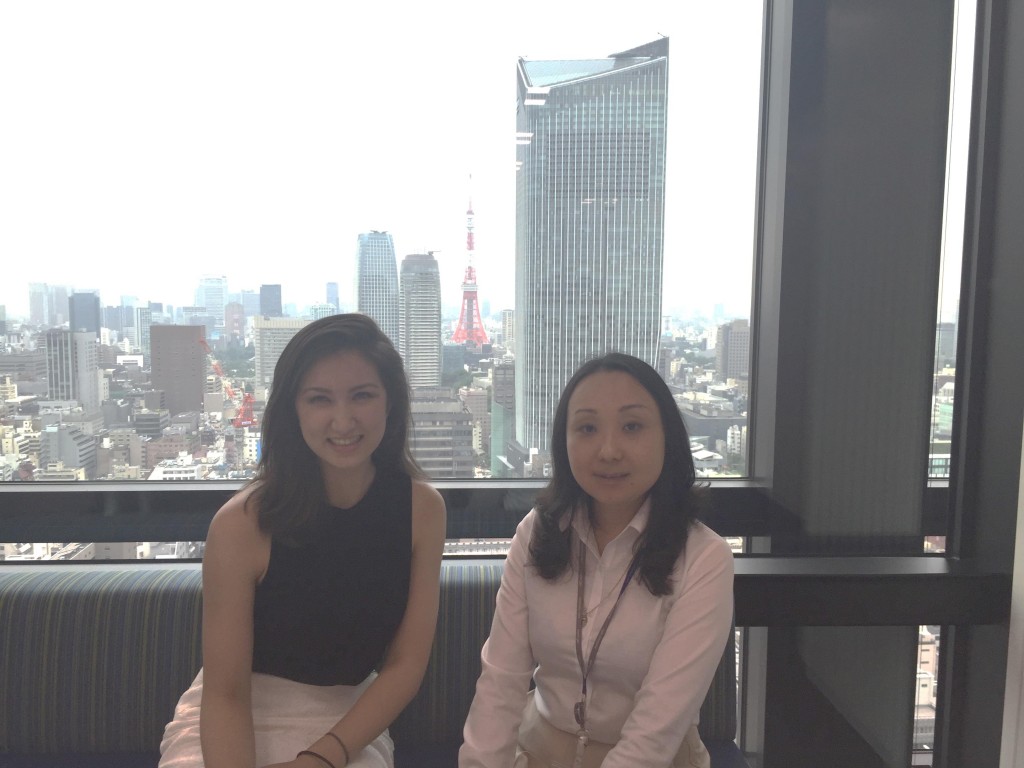
(With Michiko Iwanami in the Soken office)
